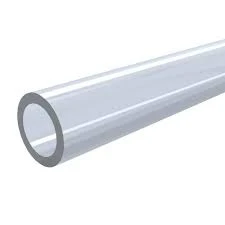Aug . 06, 2024 14:26 Back to list
Durable HDPE Black Pipe Solutions for Efficient Water Management and Sustainable Infrastructure Development
Understanding HDPE Black Pipe Advantages and Applications
High-Density Polyethylene (HDPE) black pipe is a widely used material in various industries due to its durability, resistance to corrosion, and flexibility. This type of pipe is specifically designed for applications such as water supply, drainage, and industrial processes, making it an essential component in modern infrastructure.
One of the most significant advantages of HDPE black pipe is its exceptional resistance to chemicals and environmental stresses. Unlike traditional materials such as PVC or metal pipes, HDPE does not corrode or rust over time, which greatly extends its lifespan and reduces maintenance costs. This makes it particularly suitable for transporting not only potable water but also aggressive chemicals and wastewater, as it can withstand harsh conditions without degrading.
Understanding HDPE Black Pipe Advantages and Applications
In terms of installation, HDPE black pipes can be joined through various methods, including heat fusion, which creates a strong and continuous connection. This fusion process is not only efficient but also promotes a leak-free system that enhances the overall reliability of the pipeline. Moreover, the lightweight nature of HDPE makes it easier to handle and transport compared to heavier materials, such as metal pipes.
hdpe black pipe

Another important aspect of HDPE black pipe is its environmental impact. As a sustainable material, HDPE can be recycled and repurposed at the end of its useful life, reducing waste in landfills. Additionally, its production process generally has a lower carbon footprint compared to other piping materials, making it a greener choice for modern plumbing and piping systems.
HDPE black pipe is also recognized for its efficiency in hydraulic performance. Its smooth interior surface reduces friction loss compared to other materials, which can lead to improved flow rates and reduced energy costs. This characteristic is particularly beneficial in applications such as irrigation systems and municipal water supply networks, where pressure loss can significantly impact performance and efficiency.
Moreover, HDPE is resistant to ultraviolet (UV) radiation, which ensures that the pipe's structural integrity remains intact when exposed to sunlight. This quality makes HDPE black pipe suitable for above-ground installations, as it can withstand harsh outdoor conditions without compromising its performance.
In conclusion, HDPE black pipe offers a range of advantages that make it an ideal choice for various applications in industries such as water management, construction, and manufacturing. Its durability, flexibility, cost-effectiveness, and environmental benefits position it as a superior alternative to traditional piping materials. As infrastructure demands increase, the adoption of HDPE black pipe is expected to grow, providing reliable solutions for future projects. Whether for residential, commercial, or industrial use, HDPE black pipe remains a pivotal element in ensuring efficient and sustainable piping systems.
-
High-Quality PPR Pipes and Fittings Durable ERA PPR & PVC PPR Solutions
NewsJul.08,2025
-
Black HDPE Cutting Board - Durable, Non-Porous & Food Safe HDPE Plastic Cutting Board
NewsJul.08,2025
-
High-Quality CPVC Panel Durable HDPE & PVC Panels Supplier
NewsJul.08,2025
-
Double PE Welding Rod Supplier - High Strength, Durable & Versatile Welding Solutions
NewsJul.07,2025
-
High-Quality PVC-O Pipe Supplier Durable 75mm PVC Pipe & Connections Leading PVC Pipe Company
NewsJul.07,2025
-
HDPE Drainage Pipe Supplier – Durable & Corrosion-Resistant Solutions
NewsJul.06,2025

